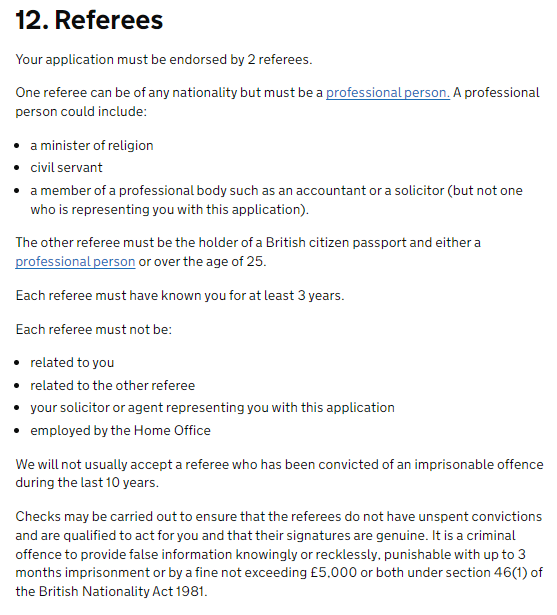Embarking on the path to British citizenship? This concise guide offers key insights and practical tips to navigate the process smoothly. From eligibility criteria to application steps, we’ll cover all you need to know to achieve your goal of becoming a British citizen.
If you’re thinking about studying in the UK, it’s crucial to find the right student accommodation. That’s where uhomes.com comes in. It’s a reliable platform that helps students like you find the perfect place to live in London, Manchester, Nottingham, Newcastle, Leeds and many other cities.

Difference Between UK Permanent Residency and Citizenship
Let’s clarify the difference between permanent residency and British citizenship.
Firstly, the Indefinite Leave to Remain (ILR) or Permanent Residency (PR) in the UK permits individuals to reside and work in the UK indefinitely but does not confer British citizenship. While PR holders can live and work in the UK without restrictions, they cannot vote or hold certain public offices. Conversely, British citizenship grants full rights and responsibilities as a British citizen, including the ability to hold public offices.
Secondly, there are distinctions regarding passports. PR holders need a passport from their country of origin for travel to and from the UK, whereas naturalised British citizens are eligible for a UK passport, simplifying travel to visa-free countries.
Thirdly, the application processes differ. While both require meeting residency criteria, naturalisation additionally entails English language proficiency, residency duration, and demonstrating good character, along with providing various supporting documents.
Fourthly, social welfare entitlements vary. PR holders can access the UK’s National Insurance system for health, unemployment, and pensions, whereas citizens enjoy additional benefits such as tax breaks, adoption benefits, and enhanced pension options.
Fifthly, while PR status can be lost after two years of continuous absence from the UK, citizenship is lifelong. However, revocation of citizenship is rare and usually occurs only in severe cases.
Lastly, PR holders retain their original nationality and passport, facilitating travel to their home country without a visa. Naturalisation requires renouncing previous nationality and obtaining a British passport, necessitating a visa for entry to the UK.
In summary, while both statuses offer legal residence in the UK, citizenship provides broader benefits. The decision to naturalise depends on individual circumstances and preferences.
Requirements for British Citizenship
According to the official website of the British government, there are various pathways to obtain British citizenship through naturalization. Among the most common routes for individuals studying or working in the UK are two approaches: Firstly, by residing or working in the UK for a designated period and subsequently applying for naturalization upon acquiring permanent residency status. Secondly, by marrying a British citizen partner and fulfilling the eligibility criteria for naturalization. Below, I will outline the requirements for both scenarios for your information.
Requirements for All Individuals Applying for British Citizenship:
- Must be at least 18 years old.
- Have no criminal record or convictions and must not have violated any UK immigration laws.
- Ability to speak English, Welsh, or Scottish Gaelic fluently (refer to specific language proficiency requirements).
- Must have successfully completed the Life in the UK Test recognized by the UK Immigration and Naturalization Service (refer to specific test requirements).
Requirements for Citizenship Post-Residency:
- The applicant must have resided lawfully in the UK for a minimum of 5 years, with the last year constituting permanent residency, necessitating a 12-month waiting period after obtaining UK permanent residence status before applying for British citizenship.
- The applicant must have held a valid work visa and been employed in the UK for at least 1 of the past 5 years.
- The applicant must not have been absent from the UK for more than 450 days in the five years preceding the naturalization application, and must not have stayed outside the UK for more than 90 days in the last 12 months.
Requirements for Citizenship via Marriage to a British Citizen:
- Applicant must be married or in a civil partnership with a British citizen.
- Must have been legally resident in the UK for at least 3 years; if granted permanent residence, no 12-month wait is needed to apply for naturalisation.
- Must not have lived outside the UK for over 270 days in the 3 years before applying, nor stayed outside for more than 90 days in the last 12 months.
Process of Applying for British Citizenship
- Step 1: Familiarize yourself with the UK naturalization guidelines provided by the government before proceeding with your application.
- Step 2: Access the naturalization application page on the official UK government website and select “Apply now.”
- Step 3: Create an account using your email address and begin completing the application form.
- Step 4: Upload copies of all required documents for your naturalization application. Alternatively, you can bring the documents to your UKVCAS interview for scanning.
- Step 5: Pay the application fee for naturalization.
- Step 6: Arrange an in-person appointment at UKVCAS to provide your biometric information as instructed.
- Step 7: Await the processing of your application, which typically takes around 6 months, though some cases may require more time.
- Step 8: Upon approval, schedule a Citizenship ceremony to formally acknowledge your commitment to upholding UK laws and values. During the ceremony, you’ll receive a British Citizenship certificate and a welcome pack, officially confirming your status as a British citizen.
Referees for British Citizenship Application
When completing the UK immigration application, you’ll need referees to verify your identity. One referee, preferably a professional like a civil servant or clergy member, can be of any nationality. The other must hold a British passport and be either a professional or over 25. They must have known you for at least 3 years and cannot be related, your solicitor, or Home Office employee. Referees with recent criminal convictions or providing false information face penalties under the British Nationality Act.

Fees for Applying for British Citizenship
The application fee for applying for citizenship in the UK is £1,330. This fee covers the processing costs associated with reviewing and considering your application for British citizenship.
Processing Time for British Citizenship Application
British naturalisation applications typically take about 6 months to process, although some may take longer. However, many applicants receive their results within 4 to 10 weeks.
British Citizenship FAQ
Yes, applicants usually need to pass the Life in the UK Test, which assesses knowledge of British customs, history, and culture.
Having a criminal record doesn’t automatically disqualify you, but it may affect your application. Each case is assessed individually.
Whether you can retain your original citizenship depends on the laws of your country of origin. Some countries allow dual citizenship, while others don’t.
Yes, minors can apply for British citizenship, but the process and requirements may vary. A parent or guardian usually applies on their behalf.
Yes, you can apply for British citizenship if you are married to a British citizen, provided you meet the residency and other eligibility criteria.
Certainly, when applying for naturalization in the UK, it’s necessary to furnish evidence of all your addresses over the past 5 years.
If you hold a UK degree, you are exempt from providing the B1 English language proficiency test. However, you are still required to pass the Life in the UK Test for life skills and provide evidence of your UK diploma.
Typically, if your child was born in the UK and one of their parents is a British citizen, they will usually acquire British citizenship automatically. You can verify other potential pathways for your child to obtain British citizenship on the UK government website.






